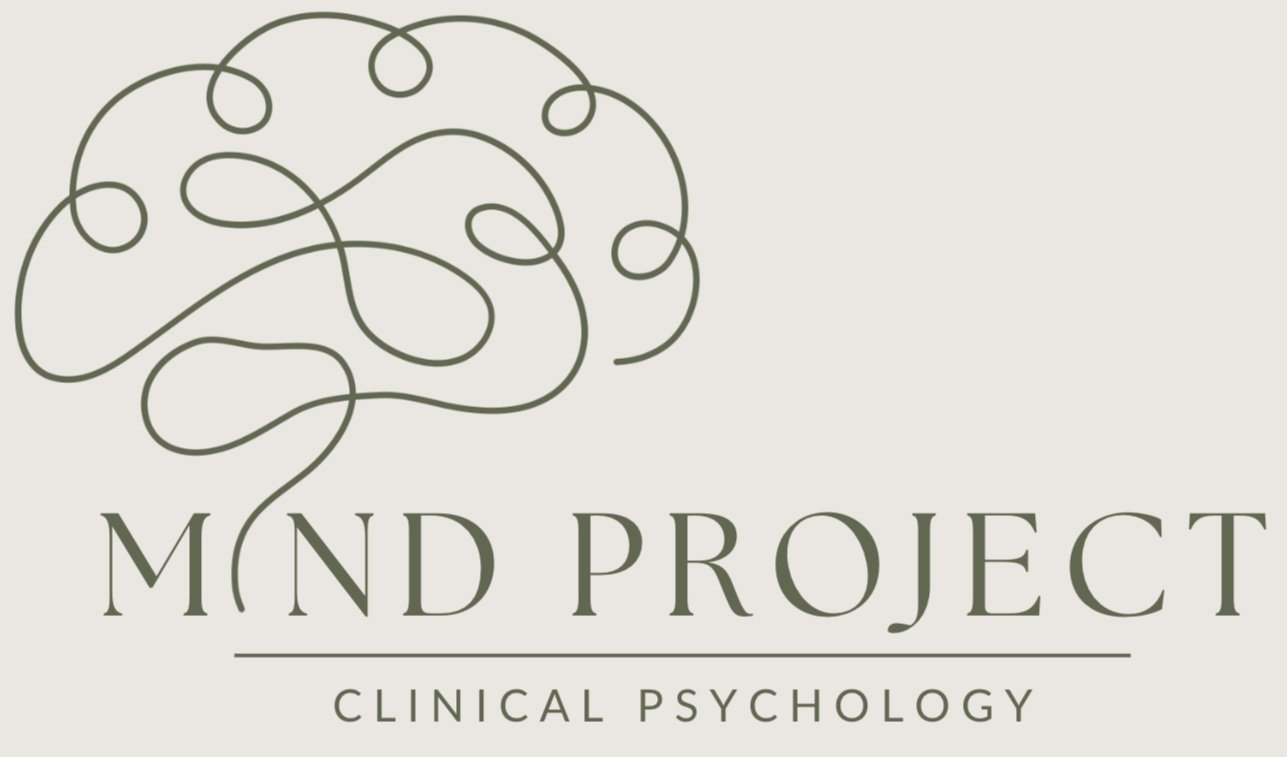
Intellectual Functioning Assessment
An Intellectual Functioning Assessment, commonly known as an IQ test or cognitive assessment, is a standardised evaluation that measures an individual's cognitive abilities and intellectual functioning. These assessments assess various aspects of cognitive skills, including verbal comprehension, perceptual reasoning, working memory, and processing speed. The results provide insights into an individual's cognitive strengths and weaknesses, helping us make informed decisions regarding the diagnosis of intellectual disabilities or giftedness. These assessments are widely used in clinical, educational, and research settings to understand an individual's cognitive abilities comprehensively. Common examples of IQ tests include the Wechsler Intelligence Scale for Children (WISC) for children and the Wechsler Adult Intelligence Scale (WAIS) for adults.
What is an Intellectual Functioning Assessment?
We do Intellectual Functioning assessments for
Teens
Children 6+
Adults

Assessment Process
-

1. Clinical Assessment Interview
In the first session, we conduct a comprehensive Clinical Assessment Interview, which typically lasts for 2 hours. For assessments involving children, we also include an interview with their caregiver to ensure a holistic understanding. During this session, we provide you with a set of online questionnaires, tailored to your specific needs. These online questionnaires will be completed in the comfort of your home, allowing you to take your time. The cost for this session is $400, and it serves as the foundation for the insightful journey ahead.
-

2. Assessment
In our second session, which extends for approximately 3 hours, we dive deeper into the assessment process. The cost for this session is $1240, and it includes the essential report writing and scoring work carried out after the appointment, ensuring you receive a comprehensive evaluation. During this session, we administer a range of assessments including the WISC-V, WIAT-III, DKEFS and CVLT-III For children and the WAIS-IV, WIAT-III, DKEFS and CVLT-III for adults. This session is a pivotal step in the assessment process.
-

3. Feedback Session
In session 3, you'll spend an hour with our experienced psychologist. This session costs $200. In this session you'll receive your comprehensive Assessment Report, expert feedback, and psychoeducation. This session is highly beneficial as it equips individuals with a deeper understanding of their condition, fostering a sense of empowerment and control over their mental health. It also enables individuals to make informed decisions regarding treatment options and strategies for managing their well-being.
Intellectual Functioning Assessment Fee Overview
Session 2
$1240
Approximately 3 hours. Price includes an 8 hour report scoring and write up by clinician
Session 1
$400
Approximately 2 hours
Session 3
$200
Approximately 1 hour
The Intellectual Functioning Assessment costs $1840 in total. After the first session, we'll let you know if a formal assessment is needed. If not, you'll only be charged for the first session.

How an Intellectual Functioning Assessment may benefit you.
Early Intervention: For children with developmental delays or learning difficulties, it allows for early intervention and support, which can significantly improve outcomes.
Identifying Giftedness: It can identify gifted individuals who may benefit from advanced or enriched educational opportunities.
Research and Treatment: In research and clinical settings, it assists in studying cognitive processes and developing targeted interventions.
Legal Considerations: In some cases, it can be used in legal contexts, such as disability claims or forensic assessments.
Diagnosis: It aids in the diagnosis of intellectual disabilities, ensuring individuals receive the necessary services and support.
Educational Planning: It guides educators in tailoring teaching strategies and support to match the student's cognitive profile, ensuring appropriate learning accommodations.
Self-Understanding: It promotes self-awareness, helping individuals understand their cognitive functioning and how it may impact various aspects of their life.
Career Guidance: It can help individuals make informed career choices that align with their cognitive abilities and interests.
Understanding Abilities: It provides a comprehensive understanding of an individual's cognitive strengths and weaknesses, helping them recognize their areas of proficiency and areas that may need improvement.
Evidence-Based Decisions: It provides objective data for making informed decisions related to cognitive development, education, and personal growth.
Why do I need an Intellectual Functioning Assessment?
-
Intellectual Functioning Assessments are frequently conducted in educational settings to assess students' learning abilities. These assessments help educators gain a deeper understanding of a student's cognitive strengths and weaknesses, shedding light on how they learn best and where they might need additional support. The primary goal of educational evaluations is often to determine if a student qualifies for special education services, such as Individualised Education Programs (IEPs). The assessment results guide educators in designing appropriate accommodations and modifications to support the student's learning. Moreover, these assessments can be instrumental in identifying students who may benefit from early intervention services, particularly in cases where developmental or learning delays are suspected in young children.
-
For parents and caregivers concerned about developmental delays in children, Intellectual Functioning Assessments can be an invaluable tool. These assessments come into play when there are signs of developmental delays or concerns about a child's developmental trajectory. Such concerns might manifest as delayed speech and language development, motor skill delays, or difficulties with social communication. The assessment process provides a structured approach to investigating these concerns and determining if there are underlying cognitive or developmental issues that require intervention. By identifying developmental delays early, assessments pave the way for timely interventions that can significantly improve a child's developmental outcomes.
-
Intellectual Functioning Assessments play a central role in diagnosing intellectual disabilities. Intellectual disabilities are characterised by limitations in intellectual functioning and adaptive behaviour. These assessments evaluate cognitive abilities such as reasoning, problem-solving, and memory, alongside adaptive functioning skills like communication and daily living skills. A formal diagnosis of intellectual disability based on such assessments helps individuals access critical support services and accommodations. It informs the development of tailored intervention plans to address specific areas of need, enhancing an individual's quality of life and helping them achieve their full potential.
-
Intellectual Functioning Assessments are also used to identify gifted individuals who demonstrate exceptional cognitive abilities and talents. Giftedness assessments are particularly relevant in educational contexts where students' advanced abilities may go unnoticed or unchallenged without formal recognition. Identifying gifted students allows educators to provide them with advanced educational opportunities, including enrichment programs, accelerated coursework, or placement in specialised learning environments. Recognising and nurturing giftedness helps gifted individuals maximise their potential and achieve academic and personal success.
-
In clinical settings, Intellectual Functioning Assessments are conducted to assess cognitive functioning related to various conditions. These assessments are vital in evaluating cognitive abilities in individuals with neurological conditions, such as traumatic brain injuries, or psychiatric disorders like schizophrenia. The results of these assessments provide valuable insights into how cognitive functioning may be affected by underlying medical or psychiatric conditions. This information informs treatment planning, rehabilitation strategies, and therapy approaches, ultimately improving an individual's quality of life and overall well-being.
-
Intellectual Functioning Assessments have legal applications, such as disability claims and court-ordered assessments. In disability claims, these assessments provide objective evidence of an individual's cognitive abilities and limitations, supporting their claims for disability benefits. In legal cases involving intellectual disability or fitness to stand trial, court-ordered assessments may be required to determine an individual's cognitive functioning and competency to participate in legal proceedings. In such cases, these assessments play a critical role in ensuring that legal proceedings are fair and equitable, taking into account an individual's cognitive capabilities.
Common Signs You Need an Intellectual Functioning Assessment
Academic Struggles
Consistently low academic performance, difficulty with reading, math, or other subjects.
Behavioural Concerns
Behavioral issues related to cognitive challenges or frustration due to learning difficulties.
Request for Accommodations
A need for accommodations in educational or workplace settings due to suspected cognitive differences.
Developmental Delays
Milestone delays in areas such as language, motor skills, or social development in children.
Learning Challenges
Persistent difficulty in grasping and retaining new information.
Family History
A family history of cognitive disorders or intellectual disabilities.
Social & Adaptive Functioning
Challenges in social interactions, problem-solving, or daily living skills.
Executive Challenges
Difficulties in tasks involving planning, organization, time management, or working memory, which can impact daily life and productivity.
Diagnostic tools used for our Intellectual Functioning Assessments
— ABAS
TThe ABAS, or Adaptive Behavior Assessment System, is a comprehensive tool used to assess and measure adaptive behavior in individuals of various age groups. Adaptive behaviours are the everyday skills and abilities needed for independent functioning and social participation. The ABAS evaluates an individual's adaptive skills across various domains, such as communication, daily living skills, socialisation, and motor skills.
— CVLT-III
The California Verbal Learning Test-III (CVLT-III) is a widely employed neuropsychological assessment tool used in Australia and globally. It evaluates an individual's verbal memory and learning abilities by presenting a list of words for immediate recall and assessing delayed recall, recognition memory, and learning over multiple trials. This assessment is instrumental in diagnosing memory-related disorders, evaluating cognitive functioning, and planning appropriate interventions for conditions such as Alzheimer's disease, traumatic brain injury, and psychiatric disorders.
— RCAD (for Children)
The RCAD, or Revised Children's Anxiety and Depression Scale, is a widely used self-report assessment tool designed to measure symptoms of anxiety and depression. It is commonly utilised by mental health professionals to assess emotional well-being in young individuals. The RCAD questionnaire consists of items that inquire about a child's thoughts, feelings, and behaviours related to anxiety and depression, providing valuable insights into their emotional state and helping in the identification of potential mental health issues.
— DKEFS
The Delis-Kaplan Executive Function System (DKEFS) is a comprehensive neuropsychological test battery used to assess various aspects of executive functioning in individuals. Developed in the United States but used in Australia and other countries as well, it measures skills like problem-solving, cognitive flexibility, inhibition, and planning. The DKEFS helps clinicians and researchers evaluate an individual's ability to manage complex cognitive tasks, which is crucial for daily life activities, academic performance, and work-related functions. It provides insights into executive function strengths and weaknesses and is often employed to assess individuals with conditions such as ADHD, brain injuries, and neurological disorders.
— WIAT-III
The Wechsler Individual Achievement Test-Third Edition (WIAT-III) is a widely used educational assessment tool in Australia and around the world. Designed to evaluate the academic achievement and skills of individuals aged 4 to 50+ years, the WIAT-III assesses various domains, including reading, writing, mathematics, and oral language. This assessment is valuable for diagnosing learning disabilities, identifying educational strengths and weaknesses, and informing educational interventions and support services. It provides a comprehensive overview of an individual's academic abilities, aiding educators, psychologists, and other professionals in making informed decisions regarding educational planning and interventions.
— WAIS (for Adults)
The WAIS, or Wechsler Adult Intelligence Scale, is a widely used standardised intelligence test designed to assess cognitive abilities and intellectual functioning in adults. It is intended for individuals aged 16 to 90 years and older. The primary purpose of the WAIS is to measure a person's general cognitive abilities, which include problem-solving, logical reasoning, memory, and other higher-level thinking skills. The WAIS assesses a wide range of cognitive abilities through various subtests, including verbal comprehension, perceptual reasoning, working memory, and processing speed. It provides an overall measure of an individual's intellectual abilities known as the Full-Scale IQ (Intelligence Quotient). The results of the WAIS are used to understand an individual's cognitive strengths and weaknesses, diagnose learning disabilities, assess intellectual giftedness, and guide educational and intervention planning.
— DKEFS
The Delis-Kaplan Executive Function System (DKEFS) is a comprehensive neuropsychological assessment tool used worldwide. It is designed to evaluate various aspects of executive functioning, such as problem-solving, cognitive flexibility, inhibition, and planning. The DKEFS is valuable for assessing an individual's ability to manage complex cognitive tasks, which is essential for daily life, academic performance, and occupational functioning. It aids in identifying executive function strengths and weaknesses and is often employed to assess individuals with conditions like attention deficit hyperactivity disorder (ADHD), brain injuries, and neurological disorders.
— WISC (For Children)
The WISC stands for the Wechsler Intelligence Scale. It is a widely used standardised intelligence test designed to assess the cognitive abilities and intellectual functioning of children and adolescents aged 6 to 16 years. The WISC provides a comprehensive evaluation of an individual's cognitive strengths and weaknesses across various domains, including verbal comprehension, perceptual reasoning, working memory, and processing speed. The primary goal of the WISC is to measure a child's intellectual abilities, such as problem-solving, logical reasoning, and abstract thinking. It is commonly used in clinical, educational, and research settings to assist in diagnosing learning disabilities, identifying giftedness, and guiding educational and intervention planning.
— DASS-21 (for Adults)
The DASS-21, or Depression Anxiety Stress Scales - 21 Item version, is a self-report assessment tool designed to measure the severity of symptoms related to depression, anxiety, and stress in individuals. The DASS-21 consists of 21 items that inquire about various emotional and psychological symptoms, and respondents rate the frequency and severity of these symptoms over the past week. It provides valuable insights into an individual's emotional well-being and is used as part of mental health assessments to assess and monitor symptoms of depression, anxiety, and stress. The DASS-21 is widely used to evaluate emotional distress and assist in treatment planning for individuals with mood and anxiety disorders.













